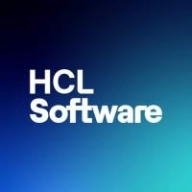

HCL AppScan and SonarQube compete in the security and code quality enhancement space. SonarQube has an edge due to its extensive language support and open-source cost-efficiency.
Features: HCL AppScan shines in detecting vulnerabilities like XSS and SQL Injection, offers templates for compliance with regulations such as PCI, and integrates well with development processes. SonarQube supports a wide array of programming languages and enhances code quality through static analysis, integrating seamlessly with CI/CD pipelines, and providing robust security vulnerability insights.
Room for Improvement: HCL AppScan needs better remediation guidance and improved mobile security analysis. Users report challenges integrating with other SecOps tools and false positives. SonarQube would benefit from more precise vulnerability detection, better integration with other development tools, an intuitive interface, and improved reporting capabilities with actionable insights.
Ease of Deployment and Customer Service: HCL AppScan is generally deployed on-premises but supports hybrid cloud setups. Its technical support receives mixed reviews post-IBM transition. SonarQube offers flexible deployment options across private and public clouds, supported by a strong community, though enterprise-level support can incur extra costs.
Pricing and ROI: HCL AppScan is seen as expensive, but its features and ROI through vulnerability reduction justify the cost compared to other premium tools. SonarQube's open-source model makes it cost-efficient, especially at scale, but enterprise features carry a higher price tag. It offers substantial ROI by improving code quality and reducing vulnerabilities, although some may find its paid features costly compared to its free offerings.
It is easily integrable with the CI/CD pipeline and supports multiple projects with its extensive plugin options.
I have seen a return on the investment from SonarQube Server (formerly SonarQube) because the value it adds relates to static code analysis and vulnerability assessments needed for our FDA approval process.
We see productivity increasing based on the fact that the code review is mostly automated, allowing the developer to fix the code themselves before assigning it to someone else to review, thus receiving that ROI.
Veracode provides excellent assistance and regularly scheduled calls to address customer concerns and updates.
There is still room for improvement when it comes to the speed of response.
The community support is quite effective.
The customer service and support for SonarQube Cloud are responsive and helpful.
Integrating it into different solutions is straightforward.
There are limitations, and it seems to have fewer capabilities than Veracode.
It has been used in multiple projects and performs well.
I would rate the scalability of SonarQube Server as a 10 because we can configure the server to scan multiple projects based on the number of lines.
Since we've been using HCL AppScan for about three months, we really have not encountered a false positive.
I think SonarQube Server (formerly SonarQube) is stable, and we did not face any problems unless there was a power outage or if the LAN cable was plugged out.
From my team's feedback, it is almost an eight out of ten.
It is a quite stable solution.
If I'm scanning a web application, it shows me the various components being used. It tells me whether I have Java libraries, .NET frameworks, or other log management libraries such as Log4j, and what versions of those specific components are present.
I would like to see SonarQube Cloud provide more detailed solutions for fixing code issues, especially solutions related to CVEs.
I need a solution that can bring together three key areas: vulnerabilities, static scanning, and misarchitecture.
Static code analysis is good, but the product lacks dynamic code scanning capabilities, an area where Veracode excels.
Companies often choose based on budget constraints, with Veracode being on the higher end cost-wise.
I would rate the pricing for SonarQube Server (formerly SonarQube) as an 8, where 1 is very cheap and 10 is very expensive, because Coverity is very expensive, and while SonarQube is not cheap, it is still less expensive than Coverity.
They always offer around a two-year contract, but we always take a one-year contract because it's expensive.
The freemium version of SonarQube Server offers excellent value, especially compared to the high costs of Snyk.
AppScan's most valuable features include its ability to identify vulnerabilities accurately, provide detailed remediation steps, and the newly introduced AI-powered features that enhance its functionality further.
I have utilized its interactive application security testing, as well as both static application security testing, dynamic application security testing, and IAST.
Some of the static code analysis capabilities are the most beneficial.
I find SonarQube Cloud very easy to use and simple to integrate initially.
It gives precise reports compared to Coverity and has a slightly lower number of false positives.
| Product | Market Share (%) |
|---|---|
| SonarQube | 16.9% |
| HCL AppScan | 2.2% |
| Other | 80.9% |

| Company Size | Count |
|---|---|
| Small Business | 14 |
| Midsize Enterprise | 6 |
| Large Enterprise | 31 |
| Company Size | Count |
|---|---|
| Small Business | 41 |
| Midsize Enterprise | 24 |
| Large Enterprise | 79 |
IBM Security AppScan enhances web application security and mobile application security, improves application security program management and strengthens regulatory compliance. By scanning your web and mobile applications prior to deployment, AppScan enables you to identify security vulnerabilities and generate reports and fix recommendations.
SonarQube leads automated code review, enhancing code quality and security in AI-driven SDLCs. It analyzes pull requests, providing developers with actionable feedback and AI-driven fixes before code merges. Trusted by top enterprises, it supports SaaS and self-managed deployments.
SonarQube supports a wide range of programming languages and integrates seamlessly with CI/CD tools like Jenkins. It is renowned for its static code analysis, code coverage, and security vulnerability detection. While its open-source foundation and scalability are praised, users seek enhanced integration across multiple languages, better security features, and improved documentation. Despite challenges, its ability to automate code inspections and ensure compliance with coding standards makes it essential in software development processes, facilitating continuous improvement.
What are the most important features?In industries like finance, healthcare, and automotive, SonarQube is leveraged for static code analysis, automating code inspections, and ensuring compliance with stringent standards. Teams integrate it into their CI/CD pipelines to maintain high-quality code, identify security vulnerabilities, and enhance code maintainability.
We monitor all Application Security Tools reviews to prevent fraudulent reviews and keep review quality high. We do not post reviews by company employees or direct competitors. We validate each review for authenticity via cross-reference with LinkedIn, and personal follow-up with the reviewer when necessary.